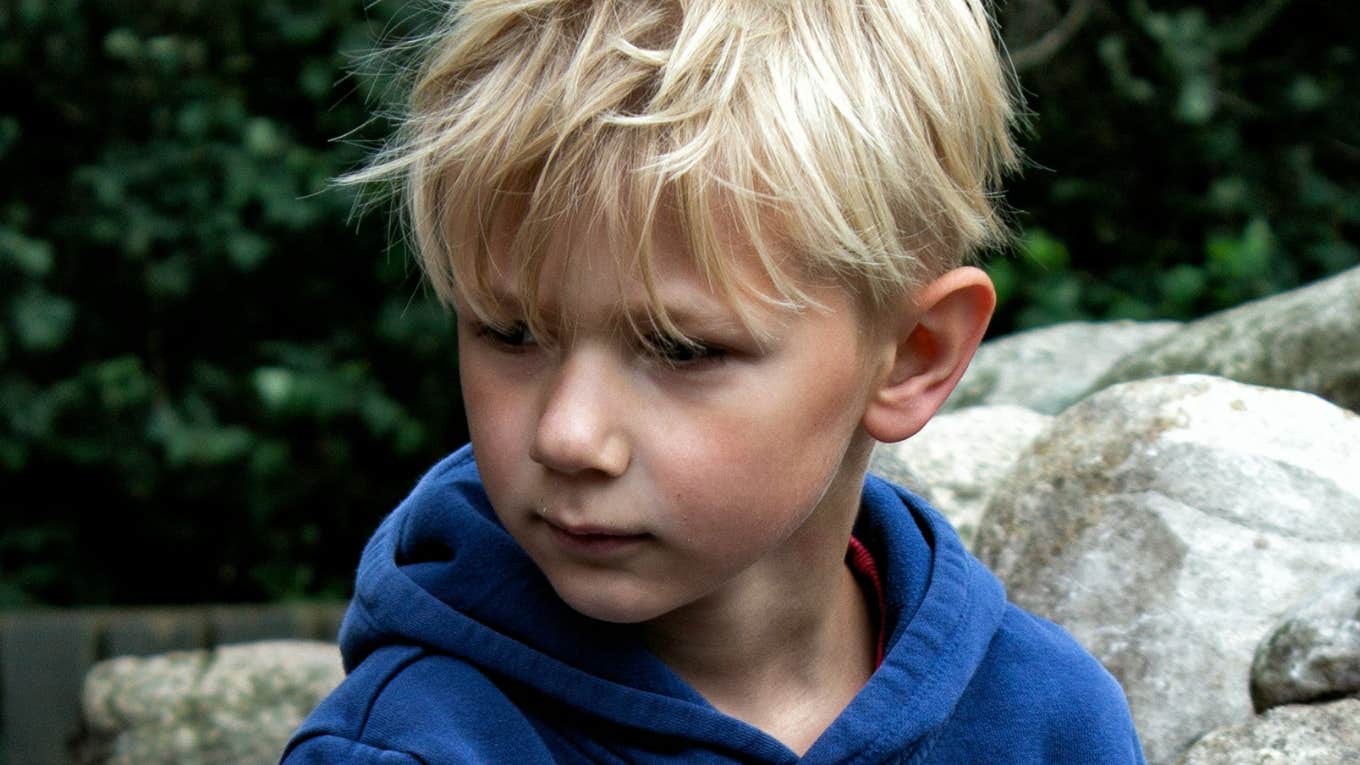You're A Great Parent To Your Kids If You Follow These 10 Old-Fashioned Rules
Old-fashioned parenting techniques that never go out of style.
 Patrick Etchers | Unsplash
Patrick Etchers | Unsplash Parenting is a job that never ends. If you've taken on this job, you need to congratulate yourself. You are responsible for the well-being of another human being.
Parents have a tremendous impact on a child — at present and in the future. Remember Freud? The way we relate to our parents indeed is how we learn to relate to the world as adults.
I find a lot of parents want to be perfect. If you feel this way, you are setting yourself up for failure. Nobody is perfect. You set the example of the need for perfection for your child. This is unrealistic and can cause problems down the road.
I also find that children are way overbooked these days. Your child doesn't have to do everything now. They have a whole lifetime to fulfill their dreams.
You're a great parent to your kids if you follow these old-fashioned rules:
1. 'Don't try to fix everything'
Give your child a chance to find their solutions (depending on their age, of course). It's alright to acknowledge that they're frustrated, simply by saying "I see you are frustrated."
This will help in the future. They will gain more confidence in themselves.
2. 'Get on your kid's level'
 maxim ibragimov / Shutterstock
maxim ibragimov / Shutterstock
Play is your child's language. Gear the type of play based on their age. Toddlers love to be touched and jump around, so allow them the space to do so.
Example? A wooden ice cream cart allows for creative expression and imaginative make-believe as they experiment with flavors, toppings, and more.
I know that almost all children love video games, which is alright if they are the non-violent type and they don't play them for more than an hour a day. But, they don't always allow a parent to play with them. Try some board games.
I have two nephews ages 4 and 6, who love to play Junior Monopoly. I love to hear them talk about the game and what they're learning as they play. Play is one of the best ways to connect with a child.
Parents playing with their children is essential for a child's overall development. Interactive play experiences promote cognitive, social, emotional, and physical skills, foster strong bonds, enhance language acquisition, improve self-regulation, and support healthy brain development.
Research published in 2022 suggests that engaging in playful activities with parents can contribute to developing executive functions such as planning, attention, and self-control.
3. 'Cheer the good stuff'
Let your child know when they are doing something helpful or nice. Cheer them on with enthusiasm.
When a child is young, they learn how to behave by the response of their parents. If they pick up their toys outside, let them know you are glad they did it. This will help reinforce good behavior.
4. 'Respect parenting differences'
It's important to support your spouse's parenting style, as long as it's not out of line. We all come from different backgrounds and have different ideas about parenting.
If your spouse thinks it's important they take on a few chores, then be supportive. When you argue or criticize one another in front of your child, you can do more harm than good.
According to a 2023 study, respecting parenting differences between parents is crucial for maintaining a healthy family dynamic. It minimizes conflict, promotes open communication, and can positively impact child development by allowing each parent to contribute their unique strengths to the parenting approach while maintaining a united front on core values.
5. 'Savor the moments '
I know parenting is the most exhausting job on the planet. Your house is a mess, the dishes are stacked up in the sink, and now your dog needs to go for a walk. When does it end?
But, your child just laughed and gave you the cutest smile. Enjoy that at the moment. This will help you think fondly of your child.
6. 'Don't let the TV be the babysitter'
The latest research has shown that there's a link between brain development and activity. Don't let the TV be the babysitter. Children can sit and watch T.V. for hours if you let them.
Let your toddler walk, rather than you carrying them or being in the stroller. Make sure to create opportunities for your child to exercise as they get older. Let them play and run around outside.
Not only will they get exercise, but they will also get natural light. This is a great way to get Vitamin D, which we all need.
Encouraging children to move regularly is crucial for their overall development. It impacts their physical health and mental well-being, with benefits including improved brain function, better cognitive skills, reduced stress levels, and enhanced social abilities.
However, research published by Utah State University explained that the frequency and type of movement should be tailored to each child's age and developmental stage.
7. 'Kids need limits'
Children want and need limits. This lets them know that you love and care for them. This can also help them make sense of a confusing world.
Try to be consistent and let them know what the boundaries are. For example, what time do they need to be home after school? When do their chores need to be done?
8. 'Reading is the gateway to learning'
 StockPhotoDirectors / Shutterstock
StockPhotoDirectors / Shutterstock
It's great to start this when you have a newborn. Babies love to hear your voice. They may not understand your words, but they pick up on tones and body language.
Cuddling up with your child and a great book is a great way to bond. Read them a story when you are getting ready to tuck them into bed. They love this.
Whenever I do this for my nephews, they don't want me to stop. They always bring a few books. This practice significantly boosts language development, vocabulary acquisition, reading comprehension, and overall literacy skills, particularly in early childhood. It also fosters a positive relationship between parent and child.
A study published in the Children and Youth Services Review showed that children regularly read to by parents are exposed to a vastly larger vocabulary and are better prepared for reading when they enter school than those who aren't read to regularly.
9. 'Carve out 'special' time'
I know you are busy. But, carve out 15-20 minutes a day to spend with your child. This is a great way to show your love. This can be when your child gets home from school.
Ask them how their day was. Ask lots of questions. This will let them know you are genuinely interested in their life. Make sure to wait for the answers.
10. 'Give yourself a break'
Ordering a pizza when you're too tired to cook doesn't make you a bad parent. You aren't Superwoman and your kids don't expect you to be. We all make mistakes.
I often tell parents that good parents make mistakes. What's important is that you learn from your mistakes. This also teaches your child that it's okay to make mistakes. There you go. Simple, right?
I know parenting can change daily. I also know your parenting style changes as your child gets older. Don't be afraid to ask questions or reach out.
Parents taking breaks for themselves is crucial for maintaining mental well-being, preventing burnout, and ultimately fostering a positive parent-child dynamic.
A 2022 study explained that regular breaks allow parents to recharge, regulate their emotions, and approach parenting with a more positive mindset, which benefits both the parent and the child. Neglecting self-care can lead to increased stress, frustration, and potentially negative parenting behaviors.
All parents struggle at times. The more you talk about your struggles, the more you will see you aren't alone.
Lianne Avila is a Licensed Marriage & Family Therapist. She is dedicated to helping couples and has completed Levels 1, 2, and 3 at The Gottman Institute.

